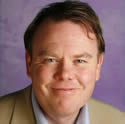How to run a workshop
Workshops offer a great forum for providing information, training, development, team-building, communications, motivation and strategic and operational planning. The participation and involvement of staff increases along with a the feeling of ownership and empowerment.
Workshops are very effective ways of in managing change and achieving improvement in a range of scenarios, and particularly the creation of ideas, plans, process and actions in order reach or to achieve particular business and organisational goals
Workshops are perfect for breaking down social or business barriers, improving the links and communications within and between departments, as well as beyond them. Workshops are also good for (CRM) customer relationship management development.
By far the most effective team-building format is the workshop. focusing on the people's key professional and personal responsibilities/interest areas. A workshop can integrate these aspects so that they develop in tandem. After all we cannot entirely separate the personal from the professional.
I use workshops regularly. Within my business I used to use them to train people within organizations to lead better to function better in teams, to deal with and manage change. Now since my business has changed I use them to educate others in how to promote, market and sell their products and services better. Essentially I use them to teach people what I learned myself about running a small business.
How a workshop works is dependent on the leader and the participants. The leader is more of a facilitator than a teacher although teaching and informing can also be a key feature.
Before a workshop starts it’s useful to know what the expectations of those attending the workshop are and that they ‘want’ to be there.
It is also useful if the group are unfamiliar with each other that there is a period at the beginning for them to get to know each other. This should be followed by some input – either from the facilitator or the group (led by the facilitator). There should be time to discuss this and to bring out key themes. Don’t feel under pressure to answer any question perfectly that emerges yourself. The idea of a workshop is that people discuss attempt to resolve each others questions.
Over the course of a day long workshop don’t attempt to cover more than 4 topics; two in the morning and two in the afternoon. Also makes sure there is a clear and obvious relationship between these topics.
End the day making sure that everyone has a satisfactory outcome from the information provided and the method in which it was discussed.
To keep energy levels high it is important that there is as much interaction as possible and that as much humour is shared as possible.
.jpg)
